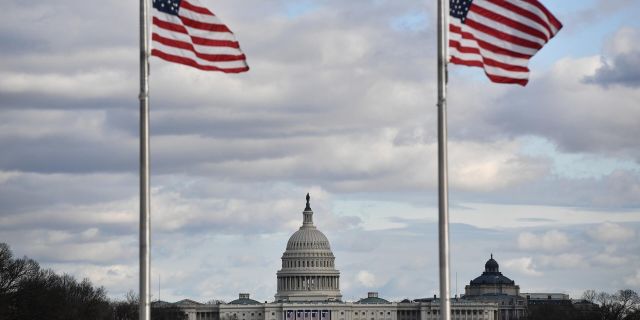There is an air of imperial arrogance from the US reproaches against China over its relations with Russia
The imperial manners of the United States can play a cruel joke on them, according to the author of the South China Morning Post. The newspaper columnist draws a parallel between today's Washington and the Roman Empire, which is just as greedy for power.
John Wight
- Washington's attempts to lecture Beijing point to an arrogance reminiscent of the arrogance of the Roman Empire, whose insatiable thirst for power ultimately caused its decline.
- Like the hostility that Rome felt towards Carthage, the United States' hostility towards China is based on the growing influence and prosperity of Beijing.
It seems that in his actions Anthony Blinken is guided by the mistaken belief that he is the Secretary of State of the whole world, and not just the United States. How else to explain his regular attempts to lecture China about relations with Russia?
Another such situation arose at the G20 summit in Indonesia. During his meeting with his Chinese counterpart Wang Yi, Blinken expressed concern about the "support" that China provides to Russia. Speaking to reporters after the five-hour meeting, Blinken rejected Wang's statement that China is neutral in the conflict between Russia and Ukraine.
This turned out to be not enough for Blinken, and he said that he "tried to convey to the state adviser that we are now experiencing a moment when we all need to resist" and that in the Ukrainian conflict "there is an obvious aggressor and an obvious victim."
Wang, who was already used to hearing such lectures from Blinken, quickly placed them in the context of American "Kitaephobia" with his characteristic speed.
All this is reminiscent of one of the most fateful meetings in history — the meeting of the Roman delegation and the Senate of Carthage, which set the direction for the development of international relations for many centuries to come.
After the fall of the Iberian city of Saguntum (modern Saguntum in Spain) in 219 BC, Rome sent its delegation to the famous Carthaginian commander Hannibal Barca.
The Romans declared Saguntum their protectorate and, as the Greek historian Polybius wrote, gave "the Carthaginians a choice of two options." Either they will hand over Hannibal and the members of his council, or war will begin. The Carthaginians refused, and Rome went to war.
Today Blinken demands that Beijing stop supporting Russian President Vladimir Putin, because otherwise he will incur the wrath of Washington — the Rome of our time. This is the arrogance that is inherent in any empire created not in the name of peace and prosperity, but for the sake of war and exploitation.
Like Rome's hostility to Carthage, the United States' hostility to China is not based on any bad deeds that Beijing has done or is doing. It is rather due to the success and stability of China's position on the world stage, as well as its growing influence. Rome felt threatened by the growing influence of Carthage. Washington feels the same way today from Beijing.
The key difference between how Washington and Beijing interact with the world comes down to the difference between dominance and partnership. Where the United States wants to dominate, China seeks to establish partnerships. Where Washington pursues a policy of interference in the internal affairs of other countries, China chooses a strategy of non—interference - out of respect for the sovereignty of other states.
China's "One Belt, One Road" initiative has made it possible to connect vast tracts of the Global South, which has been reflected in a number of infrastructure and other projects totaling almost two trillion dollars. And China's relations with Moscow, according to the Center for Strategic Studies, have strengthened since the beginning of the Ukrainian conflict, and this is largely due to the fact that Beijing also sees the United States as "the main strategic threat."
Only those who have overslept for the last few decades can disagree with this assessment. Illustrative examples are Washington's role in fomenting instability in Hong Kong through the non-governmental organization National Endowment for Democracy, as well as its alarming rejection of the "one China policy" in recent years.
As for Russia, the expansion of NATO to the east after the fall of the Berlin Wall, as well as the fact that Washington and its allies used Ukraine as a bargaining chip, which led to a coup in Kiev in 2014, represent an obvious strategic threat to Russia's security.
Blinken knows all this perfectly well, which is why his protests about Beijing's relations with Moscow sound so insincere.
Destruction of Carthage after the Third Punic War (149-146 before our era) left the world "naked and trembling" under the feet of the Roman Empire, whose thirst for power and domination was unprecedented and insatiable. It was this thirst that caused her inevitable decline.
Washington's empire is also built on greed and a thirst for power. Democracy and the human rights it supposedly protects are just a colorful curtain behind which a ferocious hegemon hides.
Putin can hardly be called a modern Hannibal, but, unfortunately, Blinken, apparently, considers himself Scipio Africanus — the famous general who defeated Hannibal at the Battle of Zama in 202 BC.

